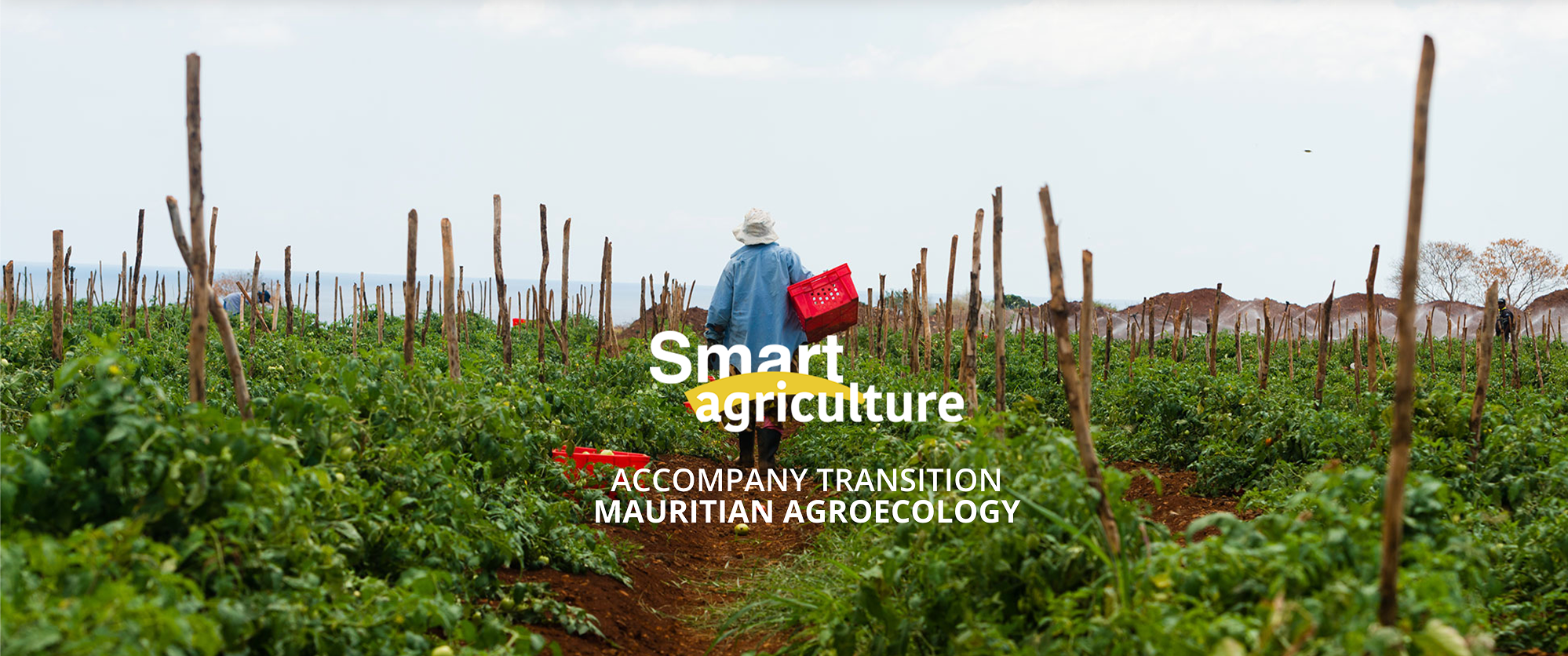
The Smart Agriculture project aims at accompanying the Mauritian agro-ecological transition. The main goal is to promote a well-reasoned mode of production which will allow
the general agriculture in Mauritius, to move towards more sustainable and resilient systems in the face of climate change.
In that regard, the management of inputs (pesticides, fertiliser, water…) is optimised and alternative techniques (traps, biodiversity, rotation) are implemented by adjusting them
to the proper context and situations present at field level.
These production systems, with the necessary traceability, will allow for the reduction of residues of plant-health products all the while taking into consideration the expectations of healthier products of the consumers as well as the need to respect the environment. The project also aims at maintaining or enhancing the economic results for the farmers while ensuring their productivity.
Phase 1
A survey conducted by the Chamber of Agriculture of Mauritius in 2015, among a sample of 300 vegetable producers across the island, revealed the intensive and uncontrolled use of pesticides. This study marked the beginning of the SMART AGRICULTURE project. Phase 2 of the SMART AGRICULTURE project, which began in 2017, focuses on reducing the use of synthetic products. The goal was to evolve the farming practices of growers by implementing agroecological strategies aimed at reducing the use of synthetic pesticides and their negative impacts on the environment, while utilizing the services provided by functional biodiversity. Phase 1 was funded by AFD (Agence Française de Développement) and the partners involved were FAREI and CIRAD.
Phase 2
The Treatment Frequency Index (TFI) represents a key indicator of the project’s progress. To achieve this, a network of 13 farmers, including both corporate and small-scale growers, was established. The farmers were trained in agroecological techniques by local and international organizations to enhance their knowledge. Various strategies (mulching, beneficial plants, composting, sanitation, etc.) and equipment (shredder, insect nets, weeders) were tested on the monitored farms. Field visits and frequent meetings were organized to promote the exchange of experiences. The record books of the farmers helped produce useful economic and technical references for sharing experiences. The economic performance of 29 vegetables (total and marketed yields, costs of seeds, pesticides, fertilizers, labor wages, fuel costs, and sale prices) from market gardening systems with sustainable practices was evaluated. On average, the plots dedicated to the project cover 4.4 acres (minimum = 0.25-acre; maximum = 26 acres).
The main result was a 58% average reduction in TFI across 10 crops (3 solanaceae, 3 cucurbits, 2 tuber vegetables, lettuce, and petsai). The TFIs for beetroot, carrot, and petsai decreased by 77% and 62%, respectively. The Karo Natirel project, which emerged from SMART AGRICULTURE, focused on better understanding the needs of local farmers and consumer demands. The phase 2 was funded by EU (European Union) and the MRIC (Mauritius Research Innovation Council) and the support of our partner FAREI (Food and Agricultural Research and Extension Institute).
Phase 3
Moving forward, the Mauritius Chamber of Agriculture plans to expand this sustainable shift with the support of the following funders: the United Nations Development Programme under the Global Environment Facility (GEF), the Small Grants Programme (SGP), the Mauritius Research Innovation Council (MRIC), and ER Group through the VARUNA project (Agir Ensemble pour la Biodiversité dans l’Océan Indien). This expansion aims at providing financial and training support to an additional 30 planters willing to transit from traditional agriculture to sustainable agriculture by applying the tested techniques previously used in the 2 phases. Additionally, the goal is to help willing farmers obtain certification for sustainable products, offering consumers healthy, certified food. This initiative will not only promote sustainable agricultural practices but also encourage responsible consumption. The final deliverable of the project will be an agroecological kit, which will include a set of tested techniques to assist other farmers who are interested in transitioning.
1.Demonstration Farms: Establishing demonstration farms where farmers can witness firsthand the principles of agroecology in action. These farms serve as practical learning centers, showcasing techniques such as intercropping, crop rotation, and natural pest control.
2.Workshops and Training Programs: Organizing workshops and training programs to educate farmers, agricultural workers, and community members about the benefits and practices of agroecology. These sessions can cover topics such as soil health, biodiversity conservation, and sustainable farming methods.
3.Educational Materials: Developing educational materials such as brochures, manuals, and online resources that explain the principles and practices of agroecology in an accessible manner. These materials can be distributed widely to reach a broader audience.
4.Field Days and Farm Tours: Hosting field days and farm tours where people can visit agroecological farms and learn directly from planters themselves. These events provide valuable opportunities for knowledge sharing and networking among farmers and enthusiasts.
5.Peer-to-Peer Learning Networks: Facilitating peer-to-peer learning networks where farmers can share their experiences, successes, and challenges while implementing agroecological practices. These networks foster collaboration and support among planters.


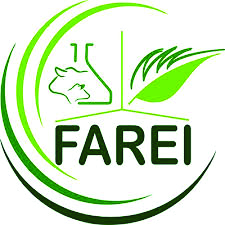


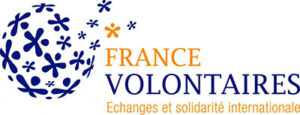

Agroecology is a set of agricultural techniques that optimizes the use of natural services provided by the environment and the use of inputs for a healthier and more sustainable production.
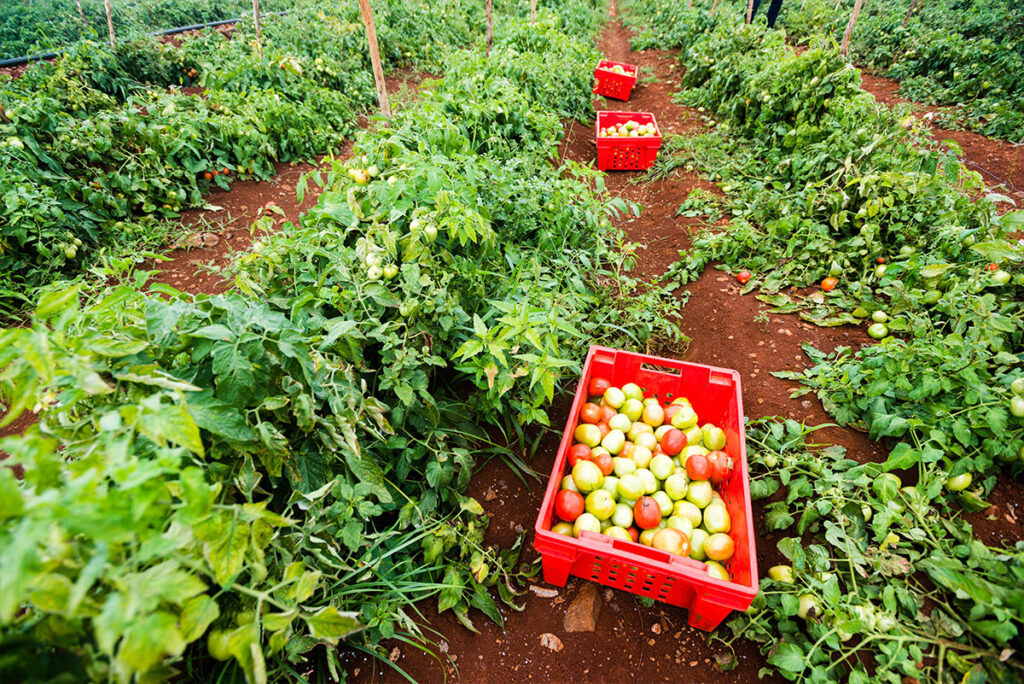
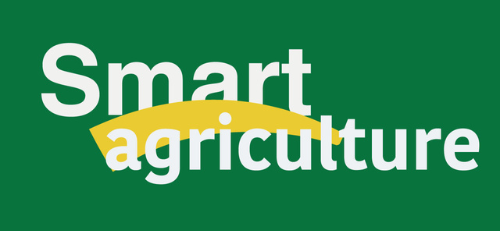
« Le contenu de ce site web relève de la seule responsabilité de la Mauritius Chamber of Agriculture et ne peut en aucun cas être considéré comme reflétant l’avis de l’Union européenne.»
Copyright © 2025 Mauritius Chamber of Agriculture. All Rights Reserved.